Official21托福阅读Passage2The Origins of Agriculture文本+题目原文+答案解析【雷哥托福】
2019-02-20 14:56:26 发布 来源:雷哥托福TPO21托福阅读Passage2The Origins of Agriculture文本+题目原文+答案解析
The Origins of Agriculture
How did it come about that farming developed independently in a number of world centers (the southeast Asian mainland, Southwest Asia, Central America, lowland and highland South America, and equatorial Africa) at more or less the same time? Agriculture developed slowly among populations that had an extensive knowledge of plants and animals. Changing from hunting and gathering to agriculture had no immediate advantages. To start with, it forced the population to abandon the nomad’s life and become sedentary, to develop methods of storage and, often, systems of irrigation. While hunter-gatherers always had the option of moving elsewhere when the resources were exhausted, this became more difficult with farming. Furthermore, as the archaeological record shows, the state of health of agriculturalists was worse than that of their contemporary hunter-gatherers.
Traditionally, it was believed that the transition to agriculture was the result of a worldwide population crisis. It was argued that once hunter-gathers had occupied the whole world, the population started to grow everywhere and food became scarce; agriculture would have been a solution to this problem. We know, however, that contemporary hunter-gatherer societies control their population in a variety of ways. The idea of a world population crisis is therefore unlikely, although population pressure might have arisen in some areas.
Climatic changes at the end of the glacial period 13, 000 years ago have been proposed to account for the emergence of farming. The temperature increased dramatically in a short period of time (years rather than centuries), allowing for a growth of the hunting-gathering population due to the abundance of resources. There were, however, fluctuations in the climatic conditions, with the consequences that wet conditions were followed by dry ones, so that the availability of plants and animals oscillated brusquely.
It would appear that the instability of the climatic conditions led populations that had originally been nomadic to settle down and develop a sedentary style of life, which led in turn to population growth and to the need to increase the amount of food available. Farming originated in these conditions. Later on, it became very difficult to change because of the significant expansion of these populations. It could be argued, however, that these conditions are not sufficient to explain the origins of agriculture. Earth had experienced previous periods of climatic change, and yet agriculture had not been developed.
It is archaeologist Steven Mithen ‘s thesis, brilliantly developed in his book The prehistory of the Mind (1996),that approximately 40,000 years ago the specializations of the mind: technical, natural history (geared to understanding the behavior and distribution of natural resources), social intelligence, and the linguistic capacity. Cognitive fluidity explains the appearance of art, religion, and sophisticated speech. Once humans possessed such a mind, they were able to find an imaginative solution to a situation of severe economic crisis such as the farming dilemma described earlier. Mithen proposes the existence of four mental elements to account for the emergence of farming (1) the ability to develop tools that could be used intensively to harvest and process plant resources;(2) the tendency to use plants and animals as the medium to acquire social prestige and power;(3) the tendency to develop “social relationships” with animals structurally similar to those developed with people –specifically, the ability to think of animals as people (anthropomorphism) and of people as animals (totemism); and (4) the tendency to manipulate plants and animals.
The fact that some societies domesticated animals and plants, discovered the use of metal tools, became literate, and developed a state should not make us forget that others developed pastoralism or horticulture (vegetable gardening) but remained illiterate and at low levels of productivity; a few entered the modern period as hunting and gathering societies. It is anthropologically important to inquire into the conditions that made some societies adopt agriculture while others remained hunter-gatherers or horticulturalists. However, it should be kept in mind that many societies that knew of agriculture more or less consciously avoided it. Whether Mithen’s explanation is satisfactory is open to contention, and some authors have recently emphasized the importance of other factors.
How did it come about that farming developed independently in a number of world centers (the southeast Asian mainland, Southwest Asia, Central America, lowland and highland South America, and equatorial Africa) at more or less the same time? Agriculture developed slowly among populations that had an extensive knowledge of plants and animals.█ Changing from hunting and gathering to agriculture had no immediate advantages. █To start with, it forced the population to abandon the nomad’s life and become sedentary, to develop methods of storage and, often, systems of irrigation. █While hunter-gatherers always had the option of moving elsewhere when the resources were exhausted, this became more difficult with farming. █Furthermore, as the archaeological record shows, the state of health of agriculturalists was worse than that of their contemporary hunter-gatherers.
TPO21 托福阅读 Passage2 The Origins of Agriculture 题目
Question 1 of 14: The word “option” in the passage is closest in meaning to
A. Choice
B. Benefit
C. Idea
D. Experience
Question 2 of 14: According to paragraph 1, all of the following are advantages of hunting and gathering over agriculture EXCEPT:
A. It is healthier lifestyle.
B. It requires less knowledge of plants and animals.
C. It does not need storage capabilities.
D. It is not tied to any specific location.
Question 3 of 14: The word “therefore” in the passage is closest in meaning to
A. In theory
B. Obviously
C. Frequently
D. As a result
Question 4 of 14: Which of the following best describes the way paragraph 2 is organized?
A.A possible explanation for a phenomenon is presented and then criticized.
B. Two similar ways of accounting for a puzzling fact are considered.
C. Early societies’ response to a problem is contrasted with contemporary societies’ response.
D.A prehistoric development is first explained in traditional terms and then in contemporary terms.
Question 5 of 14: Which of the sentences below best expresses the essential information in the highlighted sentence in the passage? Incorrect choices change the meaning in important ways or leave out essential information.
A.The resources needed by the growing bunting and gathering population increased rapidly once temperatures rose.
B.Dramatic temperature increases and the simultaneous growth of the hunting and gathering population led to the need for more resources.
C.Higher temperatures led to the existence of increased resources, thus enabling the hunting and gathering population to grow.
D.The dramatic temperature increase occurred during the few years when abundant resources allowed the hunting and gathering population to grow.
Question 6 of 14: According to paragraph 3, the abundance of resources fluctuated sharply after the end of the glacial period because
A. Locally abundant resources were quickly exhausted by hunter-gatherers
B. The temperature became much higher in some areas over others
C. Different types of plants and animals became available as the climate changed
D. The amount of rainfall varied radically from one period to the next.
Question 7 of 14: It can be inferred from paragraph 4 that it was difficult for people to change from farming back to hunting and gathering because
A. People had become more used to different types of food
B. Climatic conditions were no longer favorable for hunting and gathering
C. Populations had become too large to be supported by bunting and gathering
D. The farmer’s sedentary life was easier than the hunter-gatherer’s nomadic life
Question 8 of 14: Why does the author state that “earth had experienced previous periods of climatic change, and yet agriculture had not been developed.”?
A. To suggest that climate change had occurred long before the development of agriculture
B. To argue that climate change does not properly explain why agriculture developed
C. To challenge the assumption that agriculture developed only in some parts of the world
D. To question the claim that climate change occurred at the time when agriculture developed
Question 9 of 14: The word “imaginative” in the passage is closest in meaning to
A. Complex
B. Creative
C. Immediate
D. Reliable
Question10 of 14: According to paragraph 5, Steven Mithen believes that all of the following contributed to the emergence of farming EXCEPT
A. The development of a mind flexible enough to come up with solutions to complex problems
B. The tendency to use plants and animals to acquire power
C. The tendency to emphasize the differences between animals and people
D. The ability to make tools that could be used for the large-scale harvesting of plants
Question11 of 14: The word “contention” in the passage is closest in meaning to
A. Investigation
B. Improvement
C. Debate
D. Interpretation
Question 12 of 14: According to paragraph6, which of the following is a weakness of Mithen’s explanation?
A. It does not clearly distinguish agriculture from pastoralism and horticulture.
B. It fails to explain why some societies adopted agriculture while others did not.
C. It explains the domestication of plants and animals but not the development of metal tools.
D. It overlooks the fact that illiteracy and low productivity remain problems even today.
Question13 of 14: Look at the four squared █that indicate where the following sentence could be added to the passage.
Because humans had built up this knowledge as hunter-gatherers, it is logical to conclude that over time they would have become extremely efficient.
Where would the sentence best fit? Click on a square to add the sentence to the passage.
A. Changing from hunting and gathering to agriculture had no immediate advantages.
B. To start with, it forced the population to abandon the nomad’s life and become sedentary, to develop methods of storage and, often, systems of irrigation.
C.While hunter-gatherers always had the option of moving elsewhere when the resources were exhausted, this became more difficult with farming.
D.Furthermore, as the archaeological record shows, the state of health of agriculturalists was worse than that of their contemporary hunter-gatherers.
Question14 of 14: It is unclear why hunter-gatherers in different parts of the world independently developed agriculture at roughly the same time.
Answer choices
A. One obstacle to the transition from a nomadic life style to the sedentary lifestyle required by agriculture was that hunter-gatherers had not developed storage techniques.
B. It seems unlikely that agriculture emerged in response to a food shortage brought on by a worldwide population crisis that developed once the whole world was occupied.
C. The origins of agriculture may be linked to climate change at the end of the last ice age, but this does not explain why earlier climatic instability had not led to agriculture.
D. The only available means of understanding the social organization and technical abilities of ancient hunter-gatherer societies is the study of contemporary hunter-gatherers.
E. One recent theory suggests that the invention of agriculture was made possible by the integration of various mental capacities in the human mind.
F. Little is known about why only some societies that adopted agriculture rapidly progressed to using metal tools, becoming literate, and developing a state.
TPO21托福阅读Passage2 The Origins of Agriculture 真题解析
Question 1 of 14
答案:A
解析:option“选择,选项”,所以A的choice正确。代入原文,提到尽管游牧民族能到处搬家,但到了农耕时代这个就很难,benefit和idea明显不合文意,如果只是experience“体验”的话,即使到了农耕时代experience也不难,所以experience不正确。
Question 2 of 14
答案:B
解析:A的healthier lifestyle做关键词定位至最后一句,提到游牧生活更健康,所以A正确,不选;B的knowledge of plants and animals做关键词定位至第二句,原文提到在knowledge比较丰富的人们当中农业发展起来,但不能凭这个推出游牧生活的人知识少,所以B错误,可选;C的storage做关键词定位至第四句,提到农业需要develop storage method,所以可以看出hunting and gathering是不需要这种能力的,C正确,不选;D的specific location定位至倒数第二句,而且根据上题的答案,这个正确,不选。
Question 3 of 14
答案:D
解析:therefore“因此”,所以正确答案是D的as a result。此题简单,A“理论上说”B“明显”C“频繁”都不正确。
Question 4 of 14
答案:A
解析:提问全段如何组织,看开头,注意,一开头作者就提到traditionally,这个词的出现意味着全段可能存在转折,看第二句就提到it was argued,这和第一句观点不同,所以答案是A,先提出,再批判。
Question 5 of 14
答案:C
解析:注意allowing和due to的双重因果关系,温度上升使得resource丰富,再使得人口增长,所以答案是C,很好地重复了这个双重因果。A少缺最终的结果,也就是人口;B的simultaneously错误;D弄错了前面两个原因之间的关系。
Question 6 of 14
答案:D
解析:以fluctuate做关键词定位至最后一句,提到气候变化,先wet接着干旱,导致availability也跟着波动,所以导致resource波动的原因是气候的干湿,所以答案是D的rainfall变化。A和B完全未提及,C的不同种类的plant and animal未提及。
Question 7 of 14
答案:C
解析:以change from farming back to hunting and gathering做关键词定位至倒数第三句,原文提到难以变回去的原因是因为人口的扩张,也就是农业时期人口多,游牧时期人口少,所以答案是C,另外三个答案都未提及。
Question 8 of 14
答案:B
解析:先读例子所在的一句话,提到地球以前也有气候变化,但农业却没发展。由于整个句子都是例子,因此往前看,前一句提到单靠上文的解释都无法解释农业的起源,也就是说后文提到的气候变化是不足以解释农业的起源,所以答案是B。
Question 9 of 14
答案:B
解析:imaginative“有想象力的”,所以正确答案是B,“有创造性的”。。代入原文,提到人们一旦有了这样的想法(这样的想法指的是前文说的art, religion and sophisticated speech),就能想到什么样的解决方法,A“复杂”和C“立刻”明显不合文意,D错误,因为无法确定解决方法就是“可信的”。
Question 10 of 14
答案:C
解析:此题可采用排除法。A的solutions做关键词定位至第三句,提到有解决问题的mind,所以A正确,不选;B的plants and animals和power做关键词定位到括号的第二点,B正确,不选;C的difference原文未提及,所以C错误,可选;D的tools做关键词定位至括号的第一点,所以D正确,不选。
Question 11 of 14
答案:C
解析:contention“争论”,所以正确答案是C的debate。注意很多同学根据content是“满意”之意所以选了improvement,是不对的。原句提到Mithen的解释是否让人满意是值得怎么样的,有些人强调了其他因素的重要性,既然强调其他因素,也就是不同意他的解释,所以两种观点之间是存在争议的,答案是C。A“调查”明显不对,作者没有表现出支持谁,所以不一定Mithen的解释就需要“提高”或者“解释”,B和D都不正确。
Question 12 of 14
答案:B
解析:提问他的解释有什么问题,以人名做关键词定位至最后一句,但最后一句我们已经看过了,没提到缺点,所以往前看,前面提到有的民族定居,有的民族游牧,又说有些已经掌握农业技术的人在或多或少地避免农业,然后就提到Mithen的解释值得争议,也就是Mithen没能很好地解释这一情况发生的原因,所以答案是B,A说不能区分是错误的,原文还是区分的;C和D原文都未提及。
Question 13 of 14
答案:A
解析:此题简单,通过this knowledge这个过渡点就可以确定答案,待插入句说this knowledge,所以之前必有knowledge,答案是A。排除法也可以解决,B后面的to start with开始说插入点之前的no immediate advantages,所以不插入任何句子;C之后说搬家变难,对应C之前的sedentary,也是紧密联系;D之后的furthermore递进衔接紧密,不插入任何句子。
Question 14 of 14
答案:BCE
解析:A选项是第一段的一个细节,不选;B选项对应原文第二段第二句,也是第二段的主旨内容,正确;C选项对应原文第四段的主要内容,正确;D选项在文中完全没有涉及,不属于细节,也不属于大意,因此是错误的了;E选项是对应的第五段的内容,正确;F与原文第六段首句相关,但原文提到我们不能因为有的很先进就忘了不先进的,little is known 属于原文未提及的,所以不选。答案是BCE。
全套TPO阅读原文+题目文本+答案解析手册(合计1300页文档),在雷哥托福微信公众号获取
雷哥托福上课详情请咨询老师
1、请联系官方QQ:2250281936;
2、请联系官方个人微信号:toefl12345;
3、请咨询官方电话:400-6021-727;
【使用提示】
1、雷哥托福在线直播课,不限地域,全球考生均可报名参与。
2、获取更多托福信息,请关注雷哥托福微信公众号:toeflgo






 400-1816-180
400-1816-180


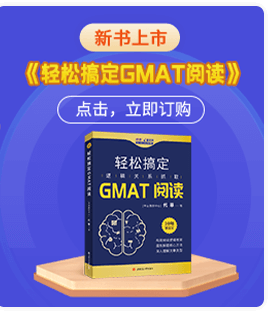




































































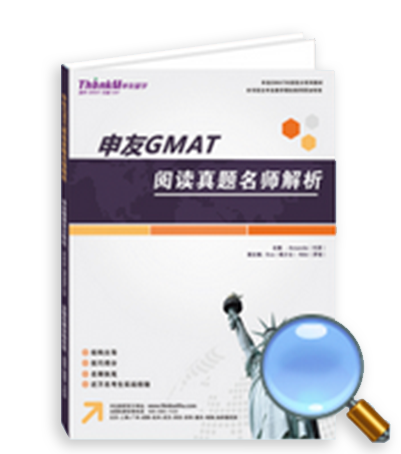

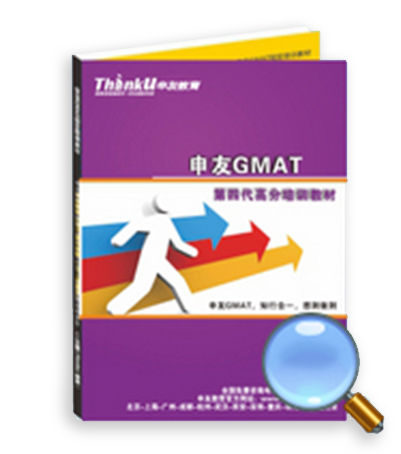

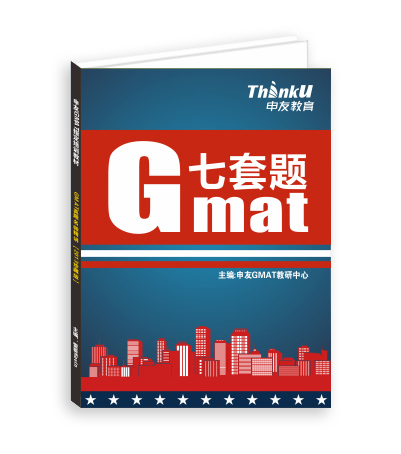
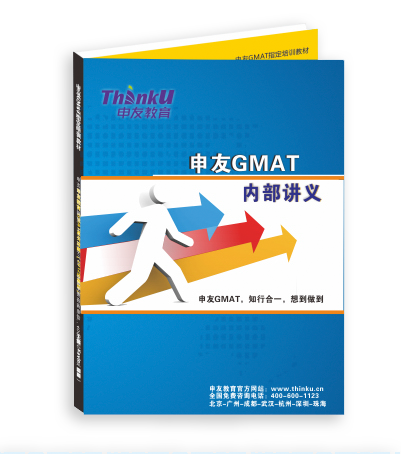



 请填写手机号
请填写手机号










 12G备考资料
12G备考资料
 直播
直播



















 分享成功
分享成功









 托福预测|2020年1月11日&12日托福考试机经预测最全资料版!
托福预测|2020年1月11日&12日托福考试机经预测最全资料版!











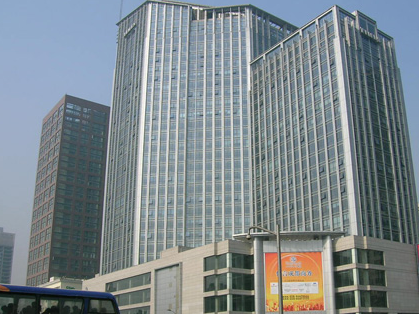












草莓小菇凉:说的非常好,十分有道理,棒棒棒!
06-08 15:44:55